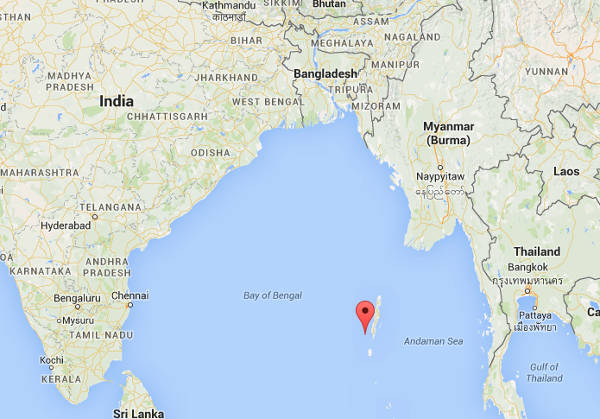The Washington Post piece by missiologist Ed Stetzer presents John Chau as an extremely well prepared missionary who did nearly everything right in his quest to convert the Sentinelese to Christianity.
According to Stetzer, Chau “worked hard to prepare for his mission.” Yet, somehow this hard work did not include learning even a single word of the Sentinelese language. In his journal, Chau described shouting from his kayak to a Sentinelese man in Xhosa, an indigenous South African language that he learned a few words of when he took a trip there to coach soccer. His attempt to communicate to the Sentinelese in a completely distinct and unrelated dialect from another continent highlights Stetzer’s misunderstanding of Chau’s preparation.
Stetzer goes on to valorize Chau’s decision to attempt to convert the North Sentinelese, painting a picture of a young man equipped for the task he set out to accomplish since he had “prepared several years for this mission, including training as an EMT and in sports medicine, both functions that might be helpful in an isolated missions endeavor.”
This type of education and training might be helpful in certain practical ways. However, having emergency medical skills means little if your undergirding theology of mission is problematic, or if you don’t understand colonialism and neocolonialism, if you are unaware of your location within American evangelicalism, or if you have been seduced by Western missionary mythology that labels white, Western Christians as “saved” and dark skinned indigenous people as “lost,” the engine that drives much evangelistic missionary work.
READ: Missions: Is It Love or Colonization?
Formational rather than skills-based preparation must include, most importantly, education and awareness about the history of harm in Christian missions, about indigenous people who have been wiped out by genocide catalyzed by violence and disease. Unless and until the missionary has wrestled with the realities of history and the ways we have benefited from white, Western Christian supremacy, missionaries will inadvertently continue to do harm, despite any and all good intentions.
Unlike Stetzer, I see no reason to valorize Chau. Neither do I see a reason to demonize him.
Chau was the product of a much older and larger evangelical missions system. His sincerity, good intentions, and practical training were no match for this larger, stronger machine in which he was embedded, one that neglects the most vital aspects of preparation for mission. Chau simply acted upon what he had been taught inside of the system of which he was a part, a system which catastrophically failed him.
So am I saying that if Chau had entered into a robust process of preparation and training that he would have been successful?
Yes.
With proper preparation, he would have re-evaluated his plans to evangelize the North Sentinelese and question his assumption that he was called to convert them. He would be alive today and the people he attempted to evangelize would not have been put in danger of being wiped out by disease.
If he was truly prepared, Chau never would have set foot on the island.

